Dave Stauffer is the Executive Director of SpringHaven Counseling Center with more than 30 years’ experience in community mental health, residential care, and private practice.
A licensed professional clinical counselor and supervisor, he works with adults, couples, families, and individuals of all ages … integrating faith into the counseling process when requested.
When he’s not in the office, Dave enjoys life on his small farm with his wife and five grown children, spending his free time outdoors camping, mountain biking, hunting, and cutting firewood.
Welcome to the Plain Values Podcast, please meet our friend, Dave Stauffer …
For more information about Dave and his amazing work, check out https://www.springhaven.us/
Transcripts
4:10 – When puppets came alive to Steve
4:58 – Meet Dave: his background and credentials.
10:39 – How Dave ended up at SpringHaven and what SH is all about.
12:49 – How SpringHaven fills a unique need in the community.
15:24 – Woodside Rest and Mother’s Hope programs explained.
17:14 – Common illnesses and struggles seen at SpringHaven.
17:47 – How technology is changing culture.
20:39 – The seriousness of postpartum.
23:26 – How Dave stays grounded and unplugs.
28:46 – Dave’s leadership style has evolved
30:00 – SpringHaven’s equine therapy program.
30:52 – Why horses and ponies are so effective in therapy.
34:30 – Marlin’s basset hounds and the story of getting Wilbur.
36:44 – How a community can heal after trauma.
38:22 – What’s next on the horizon for SpringHaven?
45:42 – Marlin’s story of a man using an AI counselor — and why human connection matters.
47:10 – How listeners can pray for Dave and the team.
Dave Stauffer:
The weight of the world lifted off of that person. And they had this beautiful interaction with this horse just standing together and it was like, oh, there is something really cool about this. That horse recognized that that person really needed connection at that point. So
Marlin Miller:
Our 12-year-old has Down syndrome and is nonverbal, almost nonverbal. And he just looked at the dog, or the dog looked at Benny and Addie and Miles, and he said, Benny is mine. Oh. Disconnected in story. It is just this. It’s a beautiful thing. Yeah, it’s just great.
I have a story for you. Six weeks ago, my friend Dave Stoffer walked into the office here and we were able to reconnect, had a great conversation, booked a time for this morning, just an hour ago to sit and record a podcast. A couple weeks later, our community, and actually my family suffered quite a tragedy. My cousin and his son both drowned. And I don’t think an exaggeration to say that our community, as well as our family are obviously reeling. I want you to know the context for this conversation, and I also want you to understand that we know that this is not a typical conversation that we have, but for the time and the reasons behind it, we actually don’t dive deep into many of the topics that we talk about for obvious reasons, for the family’s privacy, for some of those lines that are hard to find in times like this, I hope this can be a resource for you.
If you or a loved one are struggling with mental illness, please meet my friend Dave Stoffer. This podcast is sponsored by my friends at Azure Standard. A while back, I had a chance to sit down with the founder, David Stelter, right here at the table, and we had a great conversation. I love the Azure story. They started out as farmers back in the seventies, and I think in 1987, they began a nationwide food distribution company. And guys, they are non GMO organic. They do it right, they do it so well, and you can get a truck to drop food right in your town. Check ’em ou*@***********rd.com and tell ’em Marlon and plain values sent you Unask for advice is seldom appreciated. And I think that is so stinking wise, and I’ve to, I’ve actually talked to a few folks, a few friends who have buried, actually both of ’em, buried
Dave Stauffer:
Daughters, six and nine years old. And you know what they said after they learned about our family’s situation, not much at all. They didn’t say much. And I found that almost as instructive as
Marlin Miller:
You need to do this. Hey, this is, Hey. They know they don’t have an answer. They know they don’t have an answer and they don’t try to make it up.
Dave Stauffer:
And that’s where I think when you’re sitting with people, sometimes you just need to be and not offer advice. And I mean, that’s what we all need to. Yeah,
There’s so much wisdom in just being, hearing, listening. Yeah. So Seth, are we good? Okay. You can just keep going. Okay.
Marlin Miller:
Well, Dave Stoffer, thank you for walking in the office a month ago, six weeks ago, and just reconnecting. It’s just been really good. Can you tell me about your childhood, where you grew up,
Dave Stauffer:
Things like I can, yeah. So I grew up outside of Oroville on a farm, and we raised beef cattle and sheep and youngest of six. And yeah, I wasn’t the world’s best student, and I think my mom kind of gave up on me, but she encouraged me to go to college for one year and just try it for one year. And I said, okay. And I got to college and I did just well enough that they let me come back. And so I liked it and ended up majoring in psychology and went straight into master’s program for counseling. And so yeah, it’s kind of a strange way to get there in some ways, but I was going to be a diesel mechanic. That was what I was going to do. So really nothing wrong with that, but yeah.
Marlin Miller:
But that’s a completely opposite end of the spectrum.
Dave Stauffer:
It really is. So I really credit my mom for saying, Hey, you can do a little better than what you’ve done and just go to college for one year
Marlin Miller:
And just give it a whirl. Did you go to a school close by or did
Dave Stauffer:
You go far? I went to Taylor University in Indiana. Really? Which was a great experience. I mean, it was just unbelievable Christian influence there. And yeah, it just made a big difference in the direction of my life, for sure.
Marlin Miller:
What was your family life? What was your childhood? How did your folks raise you and your siblings?
Dave Stauffer:
Yeah, so we grew up at Crown Hill Mennonite, and both of my grandparents, I didn’t know real well. My mom’s dad passed away before I was born, but both of them, both my grandfathers were evangelists, pastors, that kind of thing. So it was kind of interesting to have that history. And so yeah, we grew up going to church all the time, and it was, yeah, youth group, MYF, that kind of thing was really important. And so yeah, good history there or good, good background, just growing up years for sure.
Marlin Miller:
Did your folks, did they provide a very open environment to talk about things or maybe not so much?
Dave Stauffer:
Probably more, I mean, it depends on what you talked about. My dad could talk about farming and those kind of things, and mom was probably more of a listening ear as far as anything personal or things like that, that going through stuff as a kid or whatever, probably would take that more to mom than to dad for sure.
Marlin Miller:
So when did you guys get married?
Dave Stauffer:
We got married in 1992. Shannon and I met at college at Taylor University. And so yeah, we’ve been married for 33 years, so that’s a good little while. And how many kids? We have five kids, all grown and out of the house. Are you a grandpa? I’m a grandpa. Have one granddaughter. She’s a year or two and a half years old. That’s awesome.
Marlin Miller:
Did you go into psychology right out of school as a
Dave Stauffer:
Counselor? So when I was in college, I didn’t really know what I wanted to major in, and nothing was really that terribly interesting to me. And so I ended up with a psychology professor as my advisor, and he was fantastic, and he really just encouraged me to take some psychology classes. You don’t have to be a major to have me as your advisor, but I’d like you to at least take a couple of our classes. And so to me, it was really interesting and I thought, I can talk to people, I can do this. So I started looking at graduate programs and found Ashland University or Ashland Theological Seminary through the university. And that was a good fit because I was able to move back home and go to grad school and finished that up and went straight into working in community mental Health. You, I’m going to ask that again. I’m sorry. How do you begin to practice that type of work? So you take a lot of classes. I always say the classes are necessary, but you learn more from once you actually are sitting in front of someone, but they teach you some initial skills of how to engage in how to get people to trust you and to talk and to open up and those kind of things. So those are important. And so then you go through an internship and through the internship you are seeing clients, but you’re also getting really good supervision. And then from there you go on your own, but you still have supervision for a number of years, so that’s really important.
Marlin Miller:
Okay.
Dave Stauffer:
Yeah,
Marlin Miller:
You’re probably not going to break out and start your own practice at 26 years old.
Dave Stauffer:
I didn’t have any interest in that, so yeah,
Marlin Miller:
For
Dave Stauffer:
Sure. Wow. Yeah.
Marlin Miller:
How did you end
Dave Stauffer:
Up at Spring Haven? Well, that’s a good story. So I was working in community mental health for many years, 30 years. But interestingly enough, I had done my practicum at the Crown Center for Counseling, and that was a small Christian counseling agency in Richmond. And when I graduated, I just stayed on there very, very, so one evening a week, I worked at Crown Center for counseling for about 15, 17 years, something like that, and working full-time in community mental health. And so about the time Spring Haven was forming was when I pretty much stopped seeing clients at Crown Center. I was busy with other things, and so I was aware of Spring Haven. I just wasn’t really involved with it. And so I’m just doing my thing at community mental health, liking my position. I was Chief operating Officer and got an email saying that the position was available at Spring Haven, the executive director position, and that the person thought I should apply, and then I got a second email and from someone else. And so I’m like, well, I wasn’t thinking about changing, but Go ahead.
Marlin Miller:
Wait, you got an email from person A from Spring Haven? From Spring Haven, A
Dave Stauffer:
Therapist at Spring Haven.
Marlin Miller:
Yeah. And person B was unaware that person A sent you. So it was a bit of a confirmation in your mind?
Dave Stauffer:
Yep, it really was. And so I went ahead and did a resume, hadn’t applied for a job in a long time, so I had to redo my resume and sent that into the board chair. And then it kind of went from there. And even when I went the interview at spring in front of the board, I didn’t really think, I didn’t, I’ll just go because I should do this, but I don’t know that I’m going to change and walked out of the interview and I’m like, oh, I think I may want to do this. So it was pretty exciting. It was neat to see how things kind of fell in place and that kind of thing. Spring Haven
Marlin Miller:
Fulfills a really unique spot in the community. I mean, it seems like it does as far as, well, I’ll just let you tell it. I’m sorry.
Dave Stauffer:
Yeah, so going back to my original story with Crown Center. Crown Center became Spring Haven, so that’s kind when I came to Spring Haven. It kind of felt like I was coming back to where I had started with my internship and then private practice, but it had changed too. It was a lot the same, the culture was the same, but now we were serving a lot of the plain community in this area where I had worked was more north, and so the focus wasn’t quite as much on the plain community. And so yeah, I think we do feel a certain niche there that it’s interesting. There are folks who may not appreciate or maybe trust the fact that we are all professionally trained clinicians that also come from a place of faith. And so what usually happens in those cases where there’s maybe a pocket of folks who are maybe a little more resistant to coming to see someone that’s professionally trained is that they have someone in their community that becomes very, very ill, and they come to see us and they get better, they get better, get results, and they go back to their community and they start talking about, Hey, spring Haven, I went there and my life is so much different.
And so then we might start getting more referrals from that community because of that person going back and just telling their story, just sharing that there’s help available. So that’s been neat to see.
Marlin Miller:
How many years ago did Crown and Spring Haven become the same thing?
Dave Stauffer:
Yeah, it was, 2007 is when Spring Haven was formed, and I think officially opened right around 2008 at the beginning of 2008. So
Marlin Miller:
It’s coming up on
Dave Stauffer:
20
Marlin Miller:
Years. We have a mutual friend there, and Dennis has told me for a long time that there are folks coming from far and wide.
Dave Stauffer:
They do. So it might be helpful to kind of explain our relationship with Woodside Rest and Spring Haven, but just for Spring Haven, we do see people from pretty far away for outpatient counseling, which is amazing that they will come a couple hours to see a counselor. But we also have the Amish live-in program called Woodside Rest and Mother’s Hope. And so Mother’s Hope is a very, very unique program for Amish mothers who are struggling with postpartum depression and they can bring their babies to the program. So that’s a very small program, has room for four, and then Woodside REST is a 15 bed home for the Amish. And we try to keep that as homelike create a homelike environment there. They have the opportunity to do chores, they have devotions together, they eat together, they come over to our building for all their therapy sessions and they have group and those kinds of things.
So the relationship between Spring Haven and Woodside REST is that Woodside REST has their own director and their own board that report to me and Spring Haven’s board. So it’s a really unique relationship that we can offer a lot of support. The house is completely staffed by Amish staff members and volunteers, and so we really work at creating a home-like environment that people feel comfortable and they can come and they can just relax and get help. And so that program, we really work closely with the home community and really try to help them get reintegrated back into their home community. We do passes, we do visits, we do phone calls, those kinds of things to get them back into their community.
Marlin Miller:
Can you share some of the more common things that you are seeing?
Dave Stauffer:
Yeah, we see a lot of trauma, a lot of anxiety, depression, and OCD. Those kinds of things are probably the most common. Yeah, I mean, there’s probably others, but there’s are probably the most common that we would see on a regular basis.
Marlin Miller:
It’s something that I’ve really wondered about. As the Amish culture seems to have shifted in the last 10 or 15 years. Do you have any thoughts on the changes that more technology has brought into the community?
Dave Stauffer:
Yeah, I think it’s an issue for Amish and non Amish as well, but I know that the cell phone usage and those kinds of things, I talk to parents and they’re concerned that their children are getting hold of phones and those kinds of things. But I mean, like I said, that can be a concern for our kids as well, but it’s maybe a little newer to have that technology as available in the playing community. So yeah, it’s hard to say what all that brings or what all that dynamics change with that, but I think that is a concern, especially for parents, that their kids are having more access to the technology side of things and other things that can bring. So yeah.
Marlin Miller:
How many counselors does Spring Haven have now?
Dave Stauffer:
So if you count all our student interns, we’re about 35 clinical. Are you serious clinical folks there? Yeah, which is amazing that we’re kind of out here in the country, but we’ve continued to grow very slowly and very steadily over the years. So we’re seeing about between 82 and 85 new people every month. So that’s how many people are calling to ask for help every month. So it’s unbelievable. We haven’t done a study on any breakdown of percentage of who we see or whatever, but I know years ago, probably a little under half of who we saw were Amish, and any other half would be considered just either non Amish or whatever. So yeah, so it’s just an interesting breakdown of who we see. And so the mother soap and Woodside programs are bringing people in from lots of states across the country and even Canada for their programs.
Marlin Miller:
It is. Years ago, I had a friend who, his wife had their first child, and it was the very first time that I saw into, obviously I wasn’t there. My wife and I have never been able to have children on our own, but postpartum thing, that whole thing is real. And I know that. I have no idea of what I’m saying.
Dave Stauffer:
Yeah, no, it is really serious. And if it goes untreated, oftentimes can become even more serious and become lead more toward psychosis and those kinds of things. And so it’s really important. We were trying to get to those folks who are struggling with that earlier because it is harder to treat if it’s left untreated for a period of time, and it’s hard for people to get help. I mean, they’re kind of thinking, well, I should be able to, my mom had multiple kids and she was fine, or my aunt has kids, or my sister has kids, and they don’t understand what’s happening, and they don’t understand that there’s something clinically significant going on. And so it’s just hard to recognize for them. They know they don’t feel well, but they don’t know what’s going on, and they feel like they should just be able to handle whatever it is. And so yeah, our hope is that we can get to help people a little bit earlier in the process,
Marlin Miller:
If I can ask about that. Do you think that going through all of the hormonal changes and all of those things that just naturally and rightly happen as they are pregnant and then give birth and then transition back to their life before, is it a hormonal, a chemical thing in their brain? What kicks that off?
Dave Stauffer:
That’s probably getting into more than I know, but it is something to do with that. And you don’t really know who’s going to be affected by postpartum depression. It just seems to be nobody else in the family may have ever struggled with it, and now all of a sudden someone is struggling with it. Or it can be if maybe somebody’s parent did struggle with it and now they’re struggling with. So I don’t know enough about the root of that to really probably explain any more than that, but yeah.
Marlin Miller:
Do you think those issues can be handed down in generations?
Dave Stauffer:
I think sometimes they can, yeah.
Marlin Miller:
Yeah.
Dave Stauffer:
Mental illness in itself can certainly be, there’s some genetic components to that for sure.
Marlin Miller:
How do you stay sane?
Dave Stauffer:
How do you unplug? Yeah, so we really encourage our therapists to take time for themselves to recharge. One of the things that we have under our mission statement and our vision statement is that we will give out God’s abundance in our own lives, but we will also be intentional about putting back into our lives. So our therapists all have the opportunity to do an hour of spiritual direction each month that we pay a spiritual director to come in, we pay the therapist for that hour, and then just, we won’t let them see more than four clients in a row without a break. So we are intentional about trying to take care of our people and helping them feel like it’s okay to take care of themselves and to let us know how they’re doing.
If they get a lot of one type of diagnosis or something like that to maybe say, I’m not going to take that for a little bit. And so we allow them the freedom to really control a little bit how their caseload looks and those kinds of things. But I think it is important. I mean, for me, I love mountain biking, so doing something. And so I encourage our therapist to find whatever it is that recharges them, refuels them, gets them time alone with God to just be and to discern and those kinds of things. So that’s how we do it. Yeah. Do my question. Well, and I could add that we offer a lot of support to our therapists, so they have the support of our clinical director. I’m always available. I mean, if I’m there, I’m available to just sit with them, answer questions, whatever. But they also have each other. And so that it’s really, I think it’s a unique environment where it is. I think our therapists do feel very supported by each other as well.
Marlin Miller:
You live and breathe in a hard space, man.
Dave Stauffer:
Yeah, it is different. It is different for sure. I’ve been doing it so long that I kind of forget sometimes. And I remember when I first started, man, it was tough to leave that stuff at work. I’d go home and I’d be like, man, I don’t know what to do. Because you almost just pack it on your own and shoulders carry started having kids and got busier at home. It was easier to just separate from it. And I don’t think, it’s not a matter of getting callous to it or not caring. It’s just a matter of recognizing you do what you can do.
Marlin Miller:
Well, I mean, my goodness, that reminds me very much of Lisa and my journey with our perception of foster care. Years ago, I would’ve said, oh, I could just never that.
Dave Stauffer:
And now you’ve taken in kids that have lots of needs and
Marlin Miller:
And our oldest son, there’s all kinds of trauma there. There’s all kinds of issues. And we moved them out the day after 18, we moved them out so that our little family canoe doesn’t tip over. And could I foster today? I probably could because I’ve learned how to, not that you put up a wall to put up a wall, You had to do it, but you have to be able to make it and it is just interesting how that whole thing has changed me. And I know that my wife has been changed in the process too. So this episode of the Plain Values Podcast is being sponsored by my friends at Kentucky Lumber. Derek and I have spent a lot of time on the phone and on Zoom calls, which how I feel about Zoom calls. But anyway, Derek has told me time and time again how far people travel to come and get their wood from flooring to trim to anything and everything. Wood guys, there’s a reason that people are driving across the country to go to Kentucky in the middle of a little 200 person town. They are family, they are friends, they have great customer service. There is a reason that people are traveling that far. You can find ’em at drywall haters.com. Are you still seeing patients
Dave Stauffer:
Yourself? I do a little bit, not very much, but yeah, they let me do a little
Marlin Miller:
Bit. Okay. When I try to imagine what your role would be like, you’re really leading by serving, of course, serving your counselors, I’m sure. How has your leadership styled changed over the years?
Dave Stauffer:
Yeah, that’s a good question. I don’t know that it’s changed a whole lot. I think working for a Christian organization is definitely a challenge from just challenging to my growth and my faith because I feel like I need to be more intentional about my personal relationship with Christ because I can’t lead people in that type of a setting if I’m not working on me. So I think from that standpoint, that’s been a really good challenge to come into an organization that is openly and to be able to lead that organization. I don’t take that lightly. And so I think that’s probably been the biggest change or biggest challenge for me, is just making sure that I’m taking care of myself and working on my relationship. I mean, it doesn’t do me any good to try to lead people in that direction if I’m not doing that myself. So
Marlin Miller:
You guys have an equine therapy?
Dave Stauffer:
We do have equine therapy. We have a beautiful arena. It’s somewhat heated in the winter, so we can continue right on doing sessions in the winter. We have three mini horses, three full-size horses and a pony. So we have a full barn. Talk about what you
Marlin Miller:
See in the horse or the pony, because I am not a horse guy, just very frankly, it makes me nervous to have that much power between my legs. I just don’t like it. And I’ve been on a horse a few times, but I am not comfortable. And I know that they know that. I know they
Dave Stauffer:
Feel that they can pick up on our emotions. And if we’re hesitant, if we’re fearful, it’s taken me a little bit to try to figure out what it is about equine therapy that is so effective, because I grew up on the farm. I was around animals all my life, and I’m like, well, what’s so special about a horse? But they really are, and I don’t know if I can explain really well how they do that, but they can read people’s emotions. They can just sense what is needed. And so I remember one of the groups I was leading at the equine center at the arena, this person was really struggling. I knew because they had talked to me a little bit about it, and they went to approach a horse, and the horse moved away from them, and you could just almost see them become kind of dejected, just down. And they just stood there. And a few minutes later, the horse came over and just put its muzzle on ’em a little bit, and the weight of the world lifted off of that person. And they had this beautiful interaction with this horse just standing together. And it was like, oh, there is something really cool about this.
That horse recognized that that person really needed connection at that point. So yeah, it was really cool to see. So I can’t explain it really. I mean, I think there’s a lot behind that probably that horses are intuitive and they can read human emotion and those kinds of things. It’s really good for folks who are struggling maybe to tell their story and maybe they’ve been hurt pretty severely, lots of trauma, those kinds of things where sitting down and talking like we’re talking would be very difficult for them. And so going to the arena and being around the horses, and they usually, when someone is, if they’re doing equine therapy, they’re assigned a horse, they pick a horse, and that’s their horse every time. And so they get to know the horse, the horse gets to know them, and just slowly through that process, they begin to open up and get that stuff out.
Marlin Miller:
So I’m going to make you say more about that if I can. How you just said that they begin to open up to the counselor because of the relationship with the horse.
Dave Stauffer:
Somehow it lowers their, I guess, resistance to talking about the difficult things in those. And sometimes it takes some time. It takes time just spending with the horse, and the therapist is there with them. And then oftentimes the equine part of the session is only a portion of the session. A lot of times they do work in the office as well, but I’m not trained in equine therapy, so I probably told you a little more than I know, but yeah, it’s neat to watch, for sure. Really, really neat.
Marlin Miller:
It’s an incredible thing how the Lord has made an animal to be able to read
Dave Stauffer:
Us.
Marlin Miller:
Yeah, it’s an
Dave Stauffer:
Incredible thing. It’s pretty amazing. Yeah, and like I said, I was like, well, I don’t know about this. But yeah, it’s been neat to see what happens there.
Marlin Miller:
It’s so great. I’m thinking about, we have a couple bassets at home, and almost everything that we have as far as animals is a rescue. My wife loves animals and just cannot help but rescue. And Wilbur was a puppy for, or was in a family with a lady who worked at a vet clinic who had a daughter with special needs, and Wilbur was her little puppy. He was there to take care of her. And then she passed away, and he didn’t know quite what to do with himself. He was going half nuts. And so she knew that she had to rehome him. And Lisa found out about this dog. He was in Indiana, and I drove out there to get him, and I brought him home, and he kind of looked at our kids and our 12-year-old has Down syndrome and is nonverbal, almost nonverbal. And he just looked at the dog, or the dog looked at Benny and Addie and Miles, and he said, Benny is mine.
Dave Stauffer:
Oh, just connected instantly. It is just this, it’s a beautiful thing. Yeah, it’s just
Marlin Miller:
Great.
Dave Stauffer:
Well, yeah, I mean, dogs can be used as kind of therapeutic animals as well, so that’s really neat. Yeah, it’s a real special thing. So how long ago was
Marlin Miller:
That? I think Miles was basically a baby when I went and got Wilbur. So I think he’s probably seven or eight
Dave Stauffer:
Now.
Marlin Miller:
Yeah.
Dave Stauffer:
So it’s just been that connection ever since. Yeah. Yeah. That’s really cool. That Is neat.
Marlin Miller:
That’s pretty good. So a few weeks ago there was something pretty traumatic that happened in the community, and it happened that it’s actually in my family. How does a community heal after an incident like this?
Dave Stauffer:
Well, as well as I do, this is an absolutely amazing community, and so there’s so much support and there’s just people there, I think talking about it, talking when we’re struggling. I saw an individual here recently who, anytime there’s something like that, or I shouldn’t say that, that was a pretty unique situation, but something where someone, we find out that they’ve really struggled or whatever, that he has some triggers with those kind of things. And so just he said, somebody called him and said, Hey, how you doing? Whatever. And they talked for a few minutes and he said something like this. When it happens, it kind of gets me going. I said, the guy said, yeah, I know. That’s why I called you. And so that’s the kind of stuff that gets people through just difficult stuff. And I think we live in one of the best communities because there is that level of support and care and just people aren’t afraid to reach out and say, Hey, how are you doing? That’s some of the best stuff that you can do, I think, to help a community heal and individuals
Marlin Miller:
Heal through that up. Sorry, what’s on the horizon for Spring Haven now?
Dave Stauffer:
Yeah, that’s a good question. So we’re in the middle of a pretty major capital campaign right now. And so that’s been a lot of our focus. We just completed the second floor that was left open for about five years. When they did the addition in 20 and 21, they built a second floor and just left it open. And so we are now seeing clients up there as of last week. We have six therapists up there, and it’s beautiful space. It’s going to serve us really well. And then as part of our capital campaign, we also are purchasing the land that is right next to us. There’s a woods that we have walking trails in, and we have a pavilion in there already. And so that has consumed a lot of our focus here recently. As we look into the past that we’re just looking at how we’re going to develop the campus a little bit more, what the needs are in the community.
We’re just trying to discern what’s next for us. One of the things that we’d really like to do at some point is build a cabin or cottage or something like that on our campus for marriage intensives. We offer marriage intensives that couples come to us for the week, and right now they’re staying at Soldier Iners Lodge or the little cabin next to our property there. But booking those, making sure they’re available when our therapists are scheduled to do the marriage intensive just gets a little bit tricky. So it’s working. It’s great. We love Soulja’s Lodge and the cabin, so it’s working fine, but it’d be great to have that, and then we could use that facility for families coming to visit at Woodside Rest or Mother’s Hope on the weekends. So that’s a dream that we have. That’s an idea. We’ve also talked about building a facility for Mother’s Hope.
Right now, they’re in a ranch style house, and you can imagine having four mothers and three or four babies in a pretty small area that’s a little tight, and they always have a waiting list. So we would love to build them a facility that would be a little more conducive to just the type of things that they would need and help them just engage in treatment a little bit better and those kind of things. So those are just some ideas. I always have ideas, and sometimes they’re not always good ones. But yeah, just really giving some space for what the community, what needs are out there that we can meet is what our focus will be here coming up as we’re coming out of the capital campaign and moving into what’s next,
Marlin Miller:
If I can go back to the mother’s hope space, is it a good thing for those four moms to be together, or is it a good thing for them to be able to have some space by themself?
Dave Stauffer:
I think it’s both. I think it does need to be both to feel like they’re right there with their, even when they’re in group or in therapy, we want them to be accessible or to have access to their baby, because that’s so important. I mean, that’s part of what we’re working through is just making sure that they’re making good connections and bonding with their baby, but we also don’t want them to hear every baby crying. So they do need a little bit more space and a little bit more where they can be focused in treatment and those kinds of things and let staff take care of the baby for a little bit and those kinds of things. So I think it’s kind of both. I think it’s really important that they’re in a program with other moms who are going through the same struggles, and sometimes that just lifts the weight off of them to know that they’re not the only person that’s struggling with this. And so that’s really, really important. Both of our in-house programs, I think that’s very true. I think the therapy and the groups are important, but what they experience in the homes is equally as important. And so they get support from each other. They realize they’re not alone. And so that really seems to help just for them to relax and just dig in and work on their stuff. And people could be struggling with something maybe a little bit different than they are, but it’s still, they can relate and yeah, they connect.
Marlin Miller:
How sitting here thinking about what you were saying, it simply struck me that there are so many aspects of life and there are so many different things of which I know absolutely nothing about. And it seems like this notion of certainty, maybe it’s just my own awareness of it, but I feel like at times our culture has become so sure about everything. They just have an answer for everything. And you can just Google it, right? Yeah. There’s this instantaneous, nobody has to do any research anymore. You grab your phone and now it’s with AI and it’s with chat, GPT, all those things. And I guess big picture, it just makes me long for the old days, which I know the Bible says not to do, but how do you see all of these changes coming into, and I’m not just asking this about the Amish community because I know that it’s much bigger than that, but how do you see all that change?
Dave Stauffer:
Yeah, I don’t know where that’s going to go for sure. And even maybe how that’s going to impact counseling, mental health services, because there’s a lot of services that are offered remote now and those kinds of things. We’re still pretty old school where we meet with people in the office. We do a little bit of phone and computer sessions for people who are able to do that and want to do that, we offer that, but the majority of what we do is still just in the office. But yeah, that’s an interesting question as far as not just for us, but for where we’re going. Bigger picture with that. But yeah, I don’t know really how to answer that for the counseling world, what that’s going to look like. It’s something to think about though. For sure. It’s coming.
Marlin Miller:
That’s what I think too, is that tidal Wave has already left the building. It’s on its way. I just recently, I read a story about a guy who was seeing an AI counselor, and I think he was basically told to go commit suicide.
Dave Stauffer:
Oh boy.
Marlin Miller:
And there are so many of those. I don’t want to just say delusional things. And yet at the same time, I am far from bright enough to understand how delusion works and how you get there, but the notion of talking to someone that is a real person sitting here face to face, knee to knee, and being able to communicate not only with your voice, but with body language and tonality and all of those things, it all plays into good communication.
Dave Stauffer:
And you lose that.
Marlin Miller:
It’s gone.
Dave Stauffer:
Yeah. You completely lose that if it’s AI or whatever.
Marlin Miller:
Well, if it’s ai, they may, and they probably do have tonality, and they
Dave Stauffer:
Can pick up some stuff.
Marlin Miller:
It can pick up some stuff, but it’s not real. It’s this. I just don’t understand it. So last question.
Dave Stauffer:
Okay.
Marlin Miller:
How can we pray for you guys, for your family, for your
Dave Stauffer:
Work? How can, no, that’s a great question. For Spring Haven, just what’s next and how do we continue to, yeah, we want to be responsive to the community and to the needs that are there. And that’s our whole goal, is just to be able to help and do where God’s leading us. So just discernment. And like I said, we’re kind of coming off of this big capital project, and so when you’re doing in the middle of that, it’s hard to see outside of that. And so now we’re moving outside of that and looking at what God has for us in the future, and do we just keep doing what we’re doing? Is there other things that we should be doing? Are there other needs that we should be addressing? Those kinds of things. And for me personally, I’m in a great stage of life with my kids growing and a grandkid, hopefully more grandkids coming, heading out to Montana tomorrow to go on an elk hunt with my boys, something I’ve just dreamed of doing. So that’s exciting. So maybe pray for some safety there, but we’re backpacking in on public land. Yeah. Yep. Awesome. That’s going to be just an amazing experience, I’m sure. But
Marlin Miller:
Bo
Dave Stauffer:
Bo Bo. Yep. Bo.
Marlin Miller:
So you’re getting up close and
Dave Stauffer:
Personal. Yep. So that’s exciting. But yeah, other than those kinds of things, I, I want to be a servant and just do what I can to make an impact. So yeah, just prayers as I lead the organization and that I would be, I mean, just be in tuned to what God wants. I mean, I have ideas. I have all kinds of, I think people at Spring Haven know that my mind kind of keeps going all the time, but those don’t matter so much as what I want to do, what God has for us.
Marlin Miller:
I love it. Well, thank you for the time.
Dave Stauffer:
Well, thanks for inviting me and having me here. This is great. Yeah.
Marlin Miller:
This episode is brought to you by Homestead Living Magazine. Homestead Living is a monthly print magazine that interviews all the big names in the homesteading world and they focus and educate in a wonderful way. You can learn more and su*******@*************ng.com. In his book, Rembrandt Is In the Wind, Russ Ramsey says that the Bible is the story of the God of the universe telling his people to care for the sojourner, the poor, the orphan, and the widow. And it’s the story of his people struggling to find the humility to carry out that holy calling guys. That is what plain values is all about. If you got anything out of this podcast, you will probably love plain values in print. You can go to plain values.com to learn more and check it out. Please like, subscribe and leave us a review. Guys, love. Thanks so much.
Brought to you by …
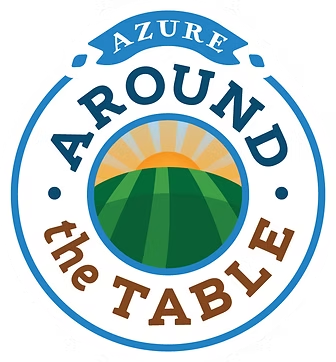
🤝THIS EPISODE’S PREMIER SPONSOR: Azure Standard
Talk about a mission-oriented company, our friends at Azure Standard set the standard of excellence when it comes to sourcing nutritious food for your family.
They have a new program called “Around the Table” that nourishes by walking shoulder-to-shoulder with churches and church communities. It’s wonderful!
Learn more: https://www.azurearoundthetable.com/

🤝THIS EPISODE’S FEATURED SPONSOR: Kentucky Lumber
Our friend Derek Guyer at Kentucky Lumber is the type of guy that you want to support. He is a highly-skilled tradesman who exemplifies excellence in everything he does. Kentucky Lumber is an independent lumber yard that truly does world class work!
We would humbly ask you to support them with your lumber needs: http://www.drywallhaters.com
“WELCOME TO THE HOME OF WOOD, PEOPLE, AND SERVICE WITH CHARACTER.”
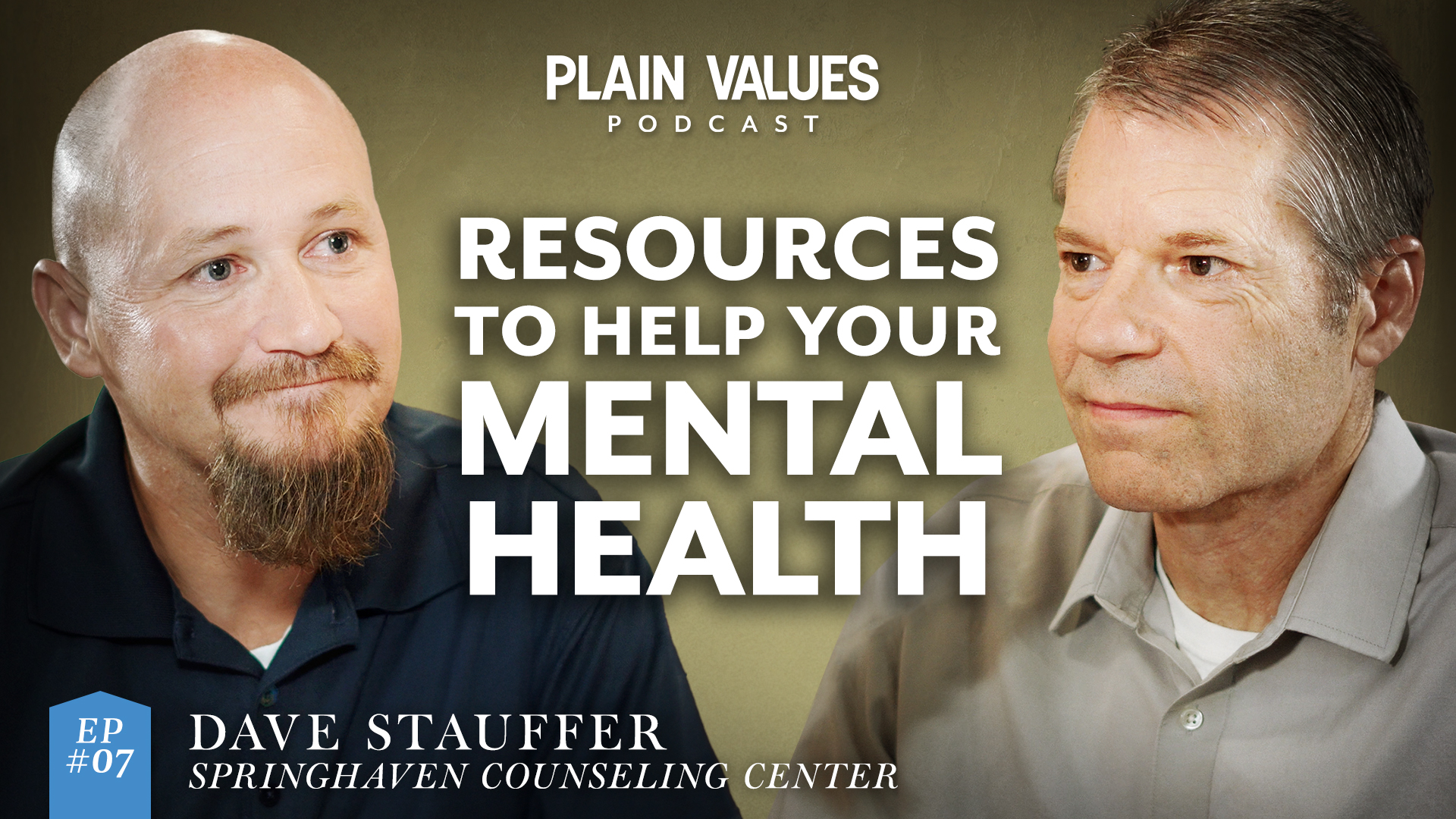
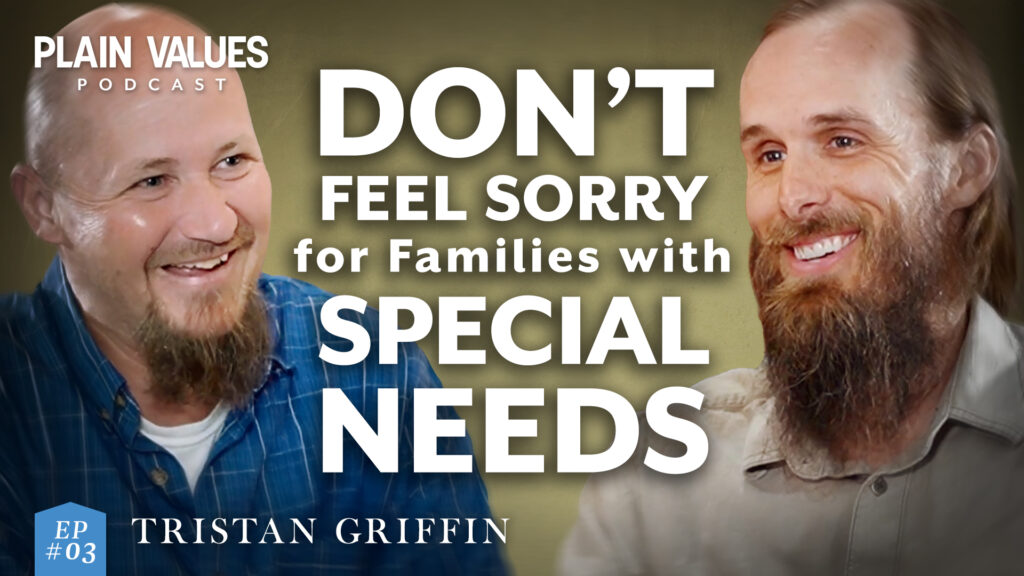
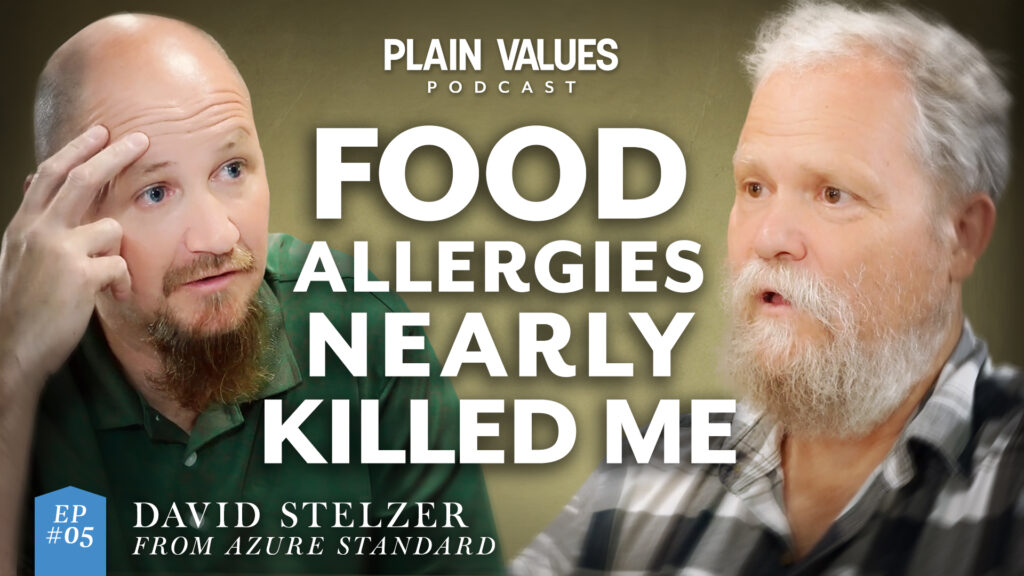
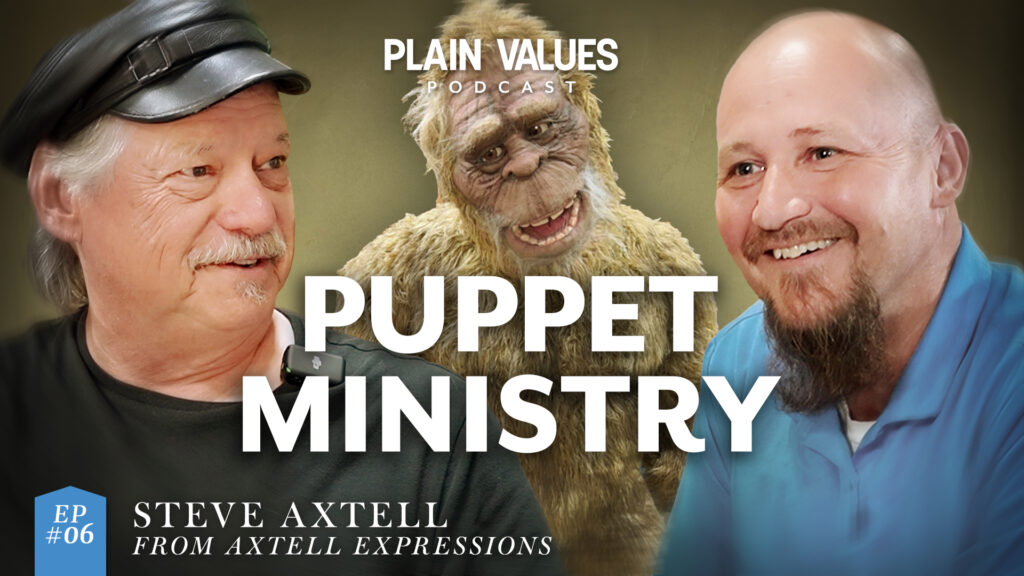
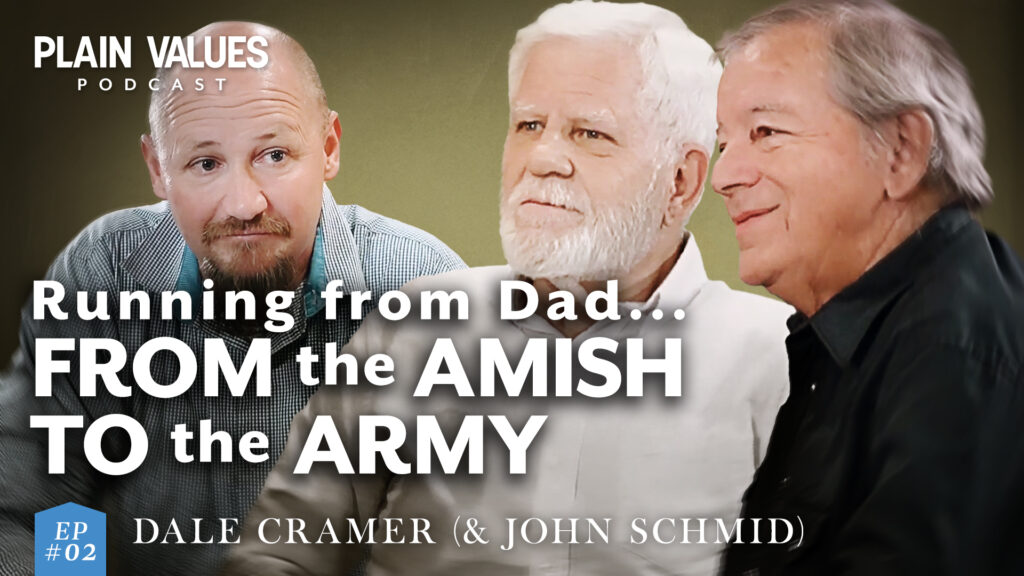




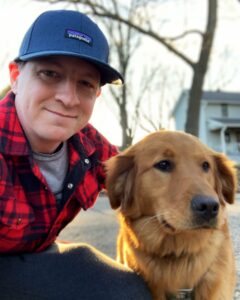

Leave a Reply